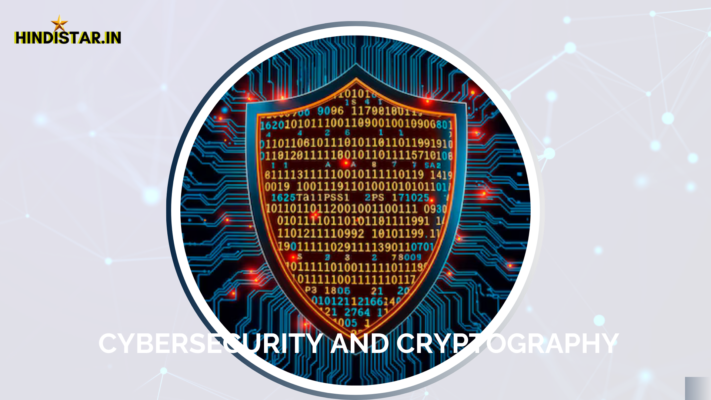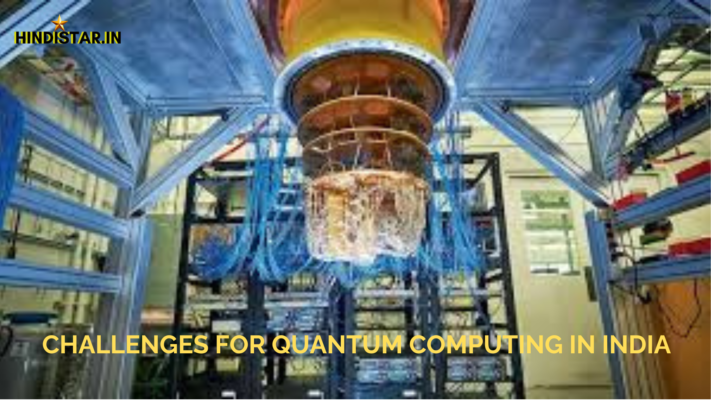What is Quantum Computing?
Quantum computing is a revolutionary field of computing that uses the principles of quantum mechanics to process and store information.
Unlike classical computers, which use bits (0s and 1s) as the smallest unit of data, quantum computers use quantum bits or qubits. Qubits can exist in multiple states simultaneously, thanks to the quantum properties of superposition and entanglement.
1

Quantum Computing in India: Pioneering the Future of Technology
Quantum computing represents a paradigm shift in computational technology, leveraging the principles of quantum mechanics to solve problems beyond the reach of classical computers. With India emerging as a global technology hub, the country has recognized the transformative potential of quantum computing. This article explores India’s strides in quantum computing, the opportunities it presents, and the challenges it faces in this revolutionary domain. 
What is Quantum Computing?
Quantum computing is a revolutionary field of computing that uses the principles of quantum mechanics to process and store information. Unlike classical computers, which use bits (0s and 1s) as the smallest unit of data, quantum computers use quantum bits or qubits. Qubits can exist in multiple states simultaneously, thanks to the quantum properties of superposition and entanglement.
Key Principles of Quantum Computing:
- Superposition:
- Classical bits can be either 0 or 1, but qubits can be in a state of 0, 1, or both simultaneously. This ability allows quantum computers to process a massive number of possibilities at once.
- Entanglement:
- When two qubits are entangled, the state of one qubit is directly related to the state of the other, regardless of the distance between them. This property enables highly efficient and correlated operations.
- Interference:
- Quantum computers use interference to amplify correct results and cancel out incorrect ones during computations.
Applications of Quantum Computing:
- Cryptography:
- Quantum computers can potentially break current cryptographic systems by factoring large numbers much faster than classical computers.
- Optimization Problems:
- Used in industries like logistics, finance, and supply chain management to solve complex optimization problems.
- Drug Discovery:
- Quantum simulations can model molecular structures and interactions, accelerating drug and material discovery.
- Artificial Intelligence and Machine Learning:
- Speeds up training of machine learning models and enhances decision-making processes.
Current Challenges:
- Scalability: Building systems with more stable qubits.
- Error Correction: Addressing the noise and instability in quantum computations.
- Practical Applications: Transitioning from theoretical potential to real-world use cases.
Quantum computing is still in its infancy but holds transformative potential for solving problems beyond the capabilities of classical computers.
- National Quantum Mission (NQM)
Launched in 2023, the NQM aims to position India as a global leader in quantum technologies by 2030. The mission focuses on:- Developing quantum computers with up to 50 physical qubits.
- Building quantum communication networks and sensors.
- Enhancing research and skill development in quantum technologies.
- ISRO’s Quantum Leap
The Indian Space Research Organisation (ISRO) has been actively exploring quantum communication technologies for secure satellite data transmission. In 2020, ISRO demonstrated free-space quantum communication over 300 meters, marking a significant milestone. - Academic Collaborations
Institutions like the Indian Institute of Science (IISc) and IITs are spearheading quantum research. Collaborative programs with global universities are fostering innovation in quantum algorithms, hardware development, and cryptography. - Corporate Participation
Indian tech giants like TCS, Infosys, and Wipro are investing in quantum computing research. They are collaborating with international players to create applications for industries like pharmaceuticals, finance, and logistics.
Applications of Quantum Computing in India
India is actively exploring the transformative potential of quantum computing in various sectors. With initiatives like the National Quantum Mission (NQM) and investments in quantum technology research, the country aims to harness quantum computing for strategic and societal benefits. Here are key applications of quantum computing in India: 
1. Cybersecurity and Cryptography
- Challenge: Protecting sensitive government and business data from cyber threats.
- Quantum Solution: Developing quantum-safe encryption techniques to secure critical information systems against future cyber-attacks, particularly in defense and finance sectors.
2. Healthcare and Drug Discovery
- Challenge: Accelerating the discovery of drugs for diseases like cancer and tuberculosis.
- Quantum Solution: Simulating molecular structures and interactions using quantum algorithms to reduce the time and cost involved in drug development.
3. Agriculture Optimization
- Challenge: Enhancing productivity and sustainability in agriculture.
- Quantum Solution: Using quantum models for weather prediction, optimizing water usage, and improving crop yield strategies.
4. Space Research
- Challenge: Solving complex physics and engineering problems in space missions.
- Quantum Solution: Leveraging quantum computing to design better navigation systems and materials for space exploration.
5. Artificial Intelligence and Machine Learning
- Challenge: Scaling AI models for large-scale applications like natural language processing and data analytics.
- Quantum Solution: Accelerating AI training and improving model accuracy, especially for personalized recommendations in education and governance.
6. Logistics and Transportation
- Challenge: Addressing inefficiencies in India’s vast supply chain and transportation networks.
- Quantum Solution: Optimizing routes and reducing costs using quantum optimization techniques.

7. Energy Sector
- Challenge: Ensuring sustainable energy distribution and usage.
- Quantum Solution: Enhancing power grid management and battery optimization for renewable energy storage.
8. Financial Services
- Challenge: Managing risks and predicting market trends.
- Quantum Solution: Quantum computers can analyze large datasets for fraud detection, risk modeling, and portfolio optimization.
9. Defense and National Security
- Challenge: Addressing advanced threats and securing critical infrastructure.
- Quantum Solution: Developing quantum radar and secure communication channels to strengthen national security.
10. Weather Forecasting and Climate Change
- Challenge: Managing climate risks and improving disaster response systems.
- Quantum Solution: Quantum models can process vast environmental data for accurate climate predictions and disaster management strategies.
Government Initiatives in India:
- National Quantum Mission (NQM): Aims to promote research and development in quantum technology.
- ISRO and DRDO Projects: Exploring quantum applications for space and defense.
- Partnerships with Academia and Industry: Collaborations with IITs and global tech companies like IBM and Google for quantum research.
Challenges for Quantum Computing in India
Despite its transformative potential, quantum computing faces several challenges in India that need to be addressed for its widespread adoption and success. These challenges span technical, financial, and infrastructural domains.

1. High Cost of Development
- Quantum computing research and infrastructure demand significant investment, including funding for hardware, software, and human resources.
- Limited availability of financial resources compared to developed countries hinders large-scale initiatives.
2. Lack of Skilled Workforce
- Quantum computing requires expertise in quantum physics, computer science, and mathematics, which is currently in short supply.
- Limited educational programs and research opportunities in Indian universities exacerbate the problem.
3. Hardware Limitations
- Building quantum processors with stable and error-resistant qubits is technologically challenging.
- Most hardware development relies on expensive materials and precision engineering, which India has yet to scale.
4. Limited Industry Collaboration
- Quantum computing demands collaboration between academia, industry, and government.
- In India, there is a lack of strong partnerships among these entities, slowing down research and development.
5. Error Correction and Stability
- Quantum systems are highly sensitive to external disturbances (noise), leading to quantum decoherence.
- Implementing robust error-correction techniques remains a major technical hurdle.
6. Infrastructure Deficit
- Quantum research requires advanced laboratories, cryogenic facilities, and high-performance computing systems, which are limited in India.
- Establishing such infrastructure is both time-intensive and costly.
7. Low Awareness and Adoption
- Quantum computing is a niche technology with limited awareness among policymakers, industries, and the general public.
- The lack of early adopters reduces the pace of its integration into practical applications.
8. Dependence on Foreign Technology
- India heavily relies on international companies for quantum hardware and software tools, which limits indigenous innovation.
- Geopolitical issues may further restrict access to critical technologies.
9. Data and Privacy Concerns
- Quantum computing can break traditional encryption, raising concerns about data security and privacy.
- India needs to develop quantum-safe cryptography to ensure secure communication and data protection.
10. Long Time Horizon for Results
- Quantum computing is still in its nascent stage, with most applications being theoretical or experimental.
- The tangible benefits for industries in India may take decades to materialize, making it a long-term investment.
Steps to Overcome These Challenges:
- Government Initiatives: Continued funding through programs like the National Quantum Mission (NQM).
- Educational Programs: Introducing quantum computing courses in universities and creating specialized research centers.
- Collaboration: Encouraging partnerships between academia, startups, and global tech leaders.
- Indigenous Development: Focusing on building domestic quantum hardware and software capabilities.
- Awareness Campaigns: Promoting quantum computing through workshops, seminars, and industry outreach.
Government Policies and International CollaborationsGovernment Policies and International Collaborations in Quantum Computing in India
India recognizes the transformative potential of quantum computing and has introduced various policies and initiatives while fostering international collaborations to accelerate research and development in this cutting-edge field. Below is an overview of key government policies and international partnerships.
Government Policies
-
National Quantum Mission (NQM):
-
Launched in 2023 with a budget of ₹6,003 crores.
-
Aims to promote research and development in quantum technologies, focusing on quantum computing, quantum communication, and quantum materials.
-
Goals include the development of 50-100 qubit quantum computers and secure quantum communication networks.
-
Quantum-enabled Science and Technology (QuEST) Program:
-
Initiated by the Department of Science and Technology (DST) to advance quantum research in India.
-
Encourages collaboration between universities, research institutions, and industry.
-
Atal Innovation Mission:
-
Focuses on promoting innovation, including quantum computing, through incubators and research funding.
-
Supports startups and entrepreneurs working on quantum solutions.
-
ISRO’s Quantum Experiments:
-
Indian Space Research Organisation (ISRO) is working on quantum communication via satellites to establish secure communication systems.
-
DRDO’s Quantum Initiatives:
-
Defense Research and Development Organisation (DRDO) is exploring quantum technologies for national security, including quantum radar and cryptography.
-
Skill Development Programs:
-
Focused on building a quantum-ready workforce by integrating quantum computing courses in IITs and other premier institutions.
-
Online platforms like NPTEL and SWAYAM offer introductory courses in quantum mechanics and computing.
International Collaborations
-
India-USA Collaboration:
-
Joint quantum research initiatives under the US-India Science and Technology Endowment Fund (USISTEF).
-
Collaborations with companies like IBM and Google to provide quantum computing platforms and training to Indian researchers.
-
India-European Union (EU) Partnership:
-
Collaborative projects under the EU Horizon 2020 program.
-
Focus areas include quantum communication, materials, and algorithms.
-
India-UK Quantum Initiative:
-
Joint research projects between Indian and UK universities in areas like quantum materials and quantum algorithms.
-
Knowledge exchange programs to train Indian researchers in quantum technologies.
-
India-Australia Quantum Cooperation:
-
Bilateral partnerships focusing on developing quantum cybersecurity frameworks.
-
Collaborative workshops and conferences to promote knowledge sharing.
-
Collaboration with Multinational Corporations:
-
Companies like IBM, Google, and Microsoft are actively partnering with Indian academic institutions and startups to provide access to quantum computing platforms and expertise.
-
Global Quantum Alliances:
-
India is exploring partnerships with countries like Canada, Japan, and Israel to access quantum hardware and share research insights.
Expected Outcomes
-
Boost in Research: Enhanced funding and collaborations are expected to position India as a hub for quantum research.
-
Skilled Workforce: Partnerships and training programs aim to create a pool of skilled professionals in quantum computing.
-
Strategic Security: Quantum technologies will strengthen national security and secure communications.
-
Economic Growth: Indigenous development of quantum technologies can boost startups, generate jobs, and attract global investments.
The Road Ahead for Quantum Computing
Quantum computing is poised to revolutionize industries, solve complex problems, and unlock new possibilities. However, its path forward requires strategic planning, investments, and global collaboration. Below is a vision for the road ahead:
1. Strengthening Research Ecosystems
- Investment in R&D: Increase funding for quantum technologies to accelerate innovation in areas like quantum hardware, algorithms, and cryptography.
- Interdisciplinary Approach: Foster collaboration among quantum physicists, computer scientists, engineers, and mathematicians.
- Research Hubs: Establish dedicated quantum computing research centers, integrating academia, industry, and government.
2. Advancing Hardware Development
- Scalable Qubits: Focus on building stable and error-resistant qubits, moving beyond 100-qubit systems toward thousands of qubits.
- Quantum Chip Fabrication: Invest in indigenous manufacturing capabilities for quantum processors.
- Reducing Costs: Develop cost-effective quantum hardware to make the technology accessible to a broader audience.
3. Workforce Development
- Educational Initiatives: Integrate quantum computing into school and university curricula.
- Upskilling Programs: Offer certifications, workshops, and online courses to train professionals in quantum technologies.
- Global Knowledge Exchange: Promote researcher and student exchange programs with leading quantum research institutions worldwide.
4. Driving Industry Adoption
- Pilot Projects: Encourage industries to implement quantum solutions for optimization, supply chain management, and AI.
- Sector-Specific Applications: Develop customized quantum solutions for healthcare, finance, energy, and logistics.
- Startup Ecosystem: Support quantum-focused startups through incubation, funding, and mentorship.
5. Enhancing Infrastructure and Security
- Quantum Communication: Develop secure quantum networks for military, government, and financial institutions.
- Robust Laboratories: Build advanced research labs with cryogenic systems and quantum simulation platforms.
- Cybersecurity Frameworks: Transition to quantum-resistant encryption to protect against future quantum-enabled threats.
6. International Collaboration
- Global Partnerships: Strengthen ties with countries leading in quantum research, such as the USA, EU, and Japan.
- Knowledge Sharing: Participate in global quantum alliances and research initiatives.
- Technology Access: Leverage collaborations to gain access to cutting-edge quantum tools and expertise.

7. Policy and Regulation
- Clear Roadmap: Define a national quantum strategy with milestones for the next 10–20 years.
- Incentives for Innovation: Provide tax benefits, grants, and subsidies for companies investing in quantum R&D.
- Ethical Guidelines: Establish regulations for the ethical use of quantum technologies.
8. Bridging the Knowledge Gap
- Public Awareness: Simplify quantum concepts to educate and engage the public.
- Workshops and Seminars: Organize events to showcase real-world quantum applications.
- Collaborative Efforts: Involve stakeholders from academia, industry, and government to address misconceptions and promote quantum literacy.
Long-term Vision: The Quantum Future
By 2040, quantum computing aims to achieve:
- Commercial Viability: Develop practical quantum systems capable of solving real-world problems.
- Global Integration: Establish quantum networks and computing services accessible to industries and governments worldwide.
- Transformative Impact: Address global challenges like climate change, healthcare innovation, and sustainable energy solutions.
- Read more hindistar
Conclusion
The road ahead for quantum computing is challenging but filled with immense potential. Through strategic investments, collaboration, and innovation, quantum technologies can


